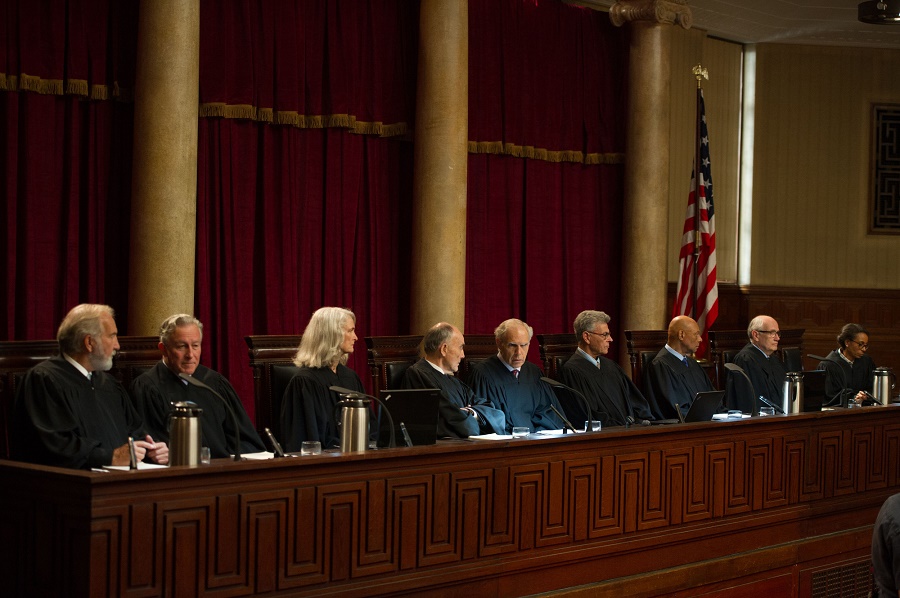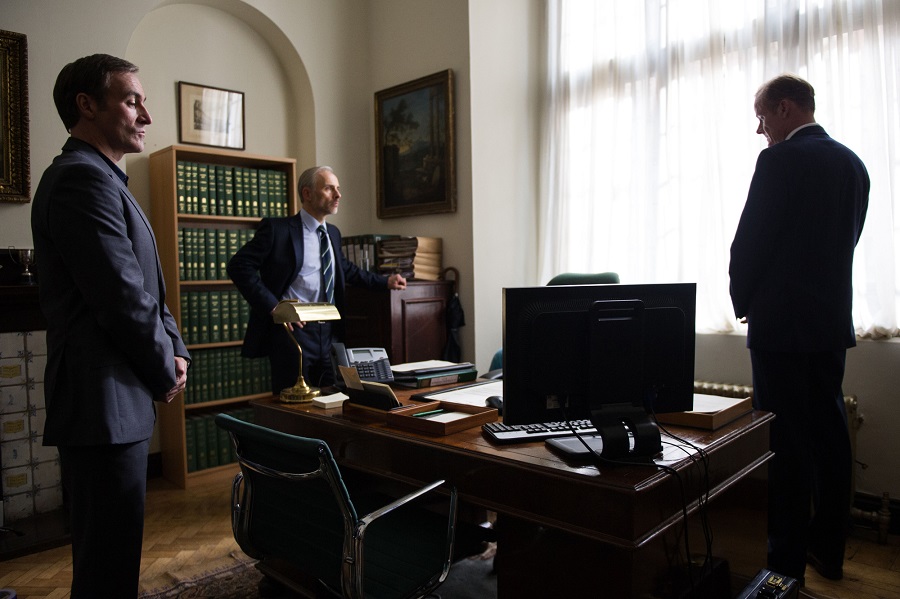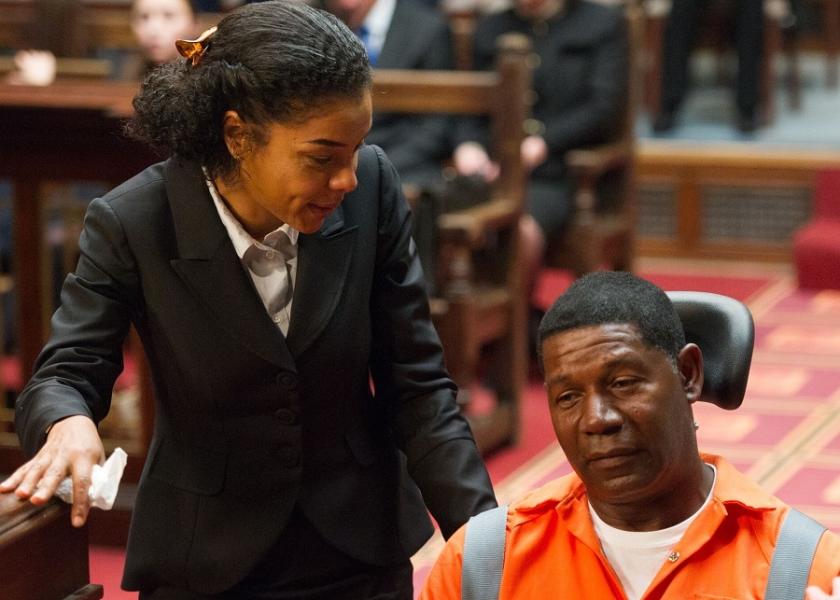In its final episode Undercover tied up a lot of loose ends and introduced a number of new ones. The biggest loose end to remain unaddressed was pretty big. Nick Johnson was the alias of a policeman who in 1996 went undercover to spy on black activist Michael Antwi and his lawyer Maya Cobbina. Nick promptly fell in love with Maya; they married and had children. For the next 20 years, Maya, possessed of such a brilliant legal mind that she ends up as Director of Public Prosecutions, never once questioned Nick’s claim to be a writer despite his prodigious – nay absolute – lack of output.
OK, so some writers are dossers, but really? Mind you, Maya seems to have been the least busy DPP in the history of that office, leaving her bags of time to fight the case of Rudy Jones, who has been on death row in Louisiana for 20 years.
Peter Moffat is a leading television scriptwriter with a long CV of dramas about the law: North Square, Silk, Criminal Justice. In Undercover he left behind the official workings of the UK legal system to paint on an altogether bigger canvas and attempt a portrait of institutional racism in not only the UK but also the US. He peopled the foreground with characters inspired by all those news stories of coppers going deep undercover. It was a lot to squeeze into a six-hour drama. The result was quite a quantity of cut corners, and plausibility casually sacrificed to the requirements of plot. The three teenage Johnson children included a son whose learning disability – an insistence on telling the truth and believing lies – was cynically exploited not only by Nick in the final episode but by Moffat generally to move the narrative along. The children were written as devoted and unstroppy, and yet when Maya had her first epileptic fit at home, her younger daughter bolshily complained that a hospital trip would mean she’d lose her lift to a party. This felt startlingly clumsy and done in poor faith. Then when the oldest daughter was delivered to her Oxford college by Nick, Maya’s best friend also happened to be dropping off her child in the same street and so was conveniently placed to witness the moment Nick was kissed by a strange woman, thus triggering his exposure.
It was a lot to squeeze into a six-hour drama. The result was quite a quantity of cut corners, and plausibility casually sacrificed to the requirements of plot. The three teenage Johnson children included a son whose learning disability – an insistence on telling the truth and believing lies – was cynically exploited not only by Nick in the final episode but by Moffat generally to move the narrative along. The children were written as devoted and unstroppy, and yet when Maya had her first epileptic fit at home, her younger daughter bolshily complained that a hospital trip would mean she’d lose her lift to a party. This felt startlingly clumsy and done in poor faith. Then when the oldest daughter was delivered to her Oxford college by Nick, Maya’s best friend also happened to be dropping off her child in the same street and so was conveniently placed to witness the moment Nick was kissed by a strange woman, thus triggering his exposure.
And yet Undercover still contrived to keep you somewhere near the edge of your seat as Nick attempted to solve the mystery of his strategic importance to invisible higher-ups. The most glaring implausibility of all turned out to be the most morally satisfying and dramatically hefty: the testimony of Rudy Jones (Dennis Haysbert) before the nine Justices of the Supreme Court (pictured above), in which the only man to survive a lethal injection broke his silence to describe the intensity of the pain, change the mind of the court and earn his acquittal. This scene was a calculated fantasy, but its heart was in the right place. What helped Undercover to improve on the sum of its overworked parts was the acting. Sophie Okonedo and Adrian Lester oozed integrity as Maya and Nick – tears for her, soulful stares for him. An array of character actors – Derek Riddell as an untouchable establishment fixer, Mark Bonnar as a dodgy prosecutor, Alistair Petrie as a bent government minister (pictured above) – were convincingly shady representatives of a corrupt and self-serving establishment bending the law for the common good.
What helped Undercover to improve on the sum of its overworked parts was the acting. Sophie Okonedo and Adrian Lester oozed integrity as Maya and Nick – tears for her, soulful stares for him. An array of character actors – Derek Riddell as an untouchable establishment fixer, Mark Bonnar as a dodgy prosecutor, Alistair Petrie as a bent government minister (pictured above) – were convincingly shady representatives of a corrupt and self-serving establishment bending the law for the common good.
Nick managed to save his marriage only by turning double agent and fully committing to the idea of self-sacrifice, with a journalist lured along to witness his murder and expose the rotten heart of his bosses. Of course it would have helped his investigation if his recording device, to conceal which he smashed up and plastercasted his own wrist, had secured the evidence he was after. But then he wouldn’t have had to tell Maya his life story, and finally get round to a bit of writing.















Add comment